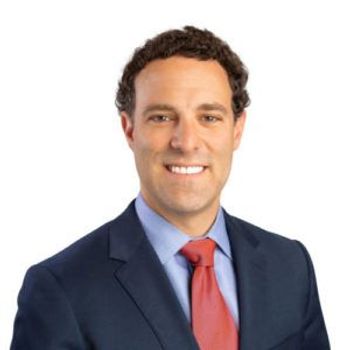
Patient Engagement: "Blockbuster Drug" if ACOs Can Learn to Harness Potential, AJMC Attendees Hear
Now that accountable care organizations are up and running, the key will be engaging those with the greatest potential to make or break their bottom lines-patients. Last week's meeting of the ACO and Emerging Healthcare Delivery Coalition, an initiative of The American Journal of Managed Care, examined why changing mindsets may matter more than technology or measurement.
FOR IMMEDIATE RELEASEOCTOBER 20, 2015
PALM HARBOR, Florida—What if accountable care organizations (ACOs) could find a solution that would get patients to take their medications, follow doctors’ instructions, show up for appointments, and exercise?
People would be healthier and ACOs would see savings. That “drug” exists, as Nicole Bradberry of Continuum Health Alliance described during a discussion last week at the fall meeting of the ACO and Emerging Healthcare Delivery Coalition, presented by The American Journal of Managed Care.
“Patient engagement is the next blockbuster drug,” she said. However, it requires a change of mindset that doesn’t give up or pass the blame when patients fail to do as they’re told.
Over two days last week at the Innisbrook Resort, attendees examined how the failure to treat patients like consumers of healthcare fails them, when no other service industry would blame poor results on the customer. Too often, speakers said, the healthcare system is concerned about following its own list of instructions than asking whether it’s getting the desired result. ACOs have to change that attitude, said Leonard M. Fromer, MD, executive medical director, Group Practice Forum. “It’s not about checking lists,” he said. “It’s about changing a culture.”
When Healthcare Falls Short. When patients aren’t treated like customers, things happen like the story from keynote speaker Leah Binder, MA, MGA, president and CEO of The Leapfrog Group. She described her elderly mother’s dismay at a Florida hospital’s decision to serve dinner at 7 p.m., when most seniors eat much earlier. When Binder called the hospital CEO about it, he seemed unmoved.
Meeting chairman Anthony Slonim, MD, DrPH, president and CEO of Renown Health in Nevada, described his response to physicians who complained about being graded on whether women who failed to show up for mammograms ended up with breast cancer. “You have mechanisms to find them when they don’t pay their bill.” Putting the onus back on the doctor, he said, “puts some tension in the conversation.”
Bradberry noted that if a salesperson complained about customers who didn’t buy their products, no one would find that acceptable. Patient engagement, she said, “is so much bigger than people think about it today.” Healthcare systems must take the issue seriously, because engaged patients are more satisfied and will want to stay with their ACO for care.
Technology, and a Voice. The role of electronic medical records (EMR) in managing population health has received a lot of attention, from HHS and elsewhere. Increasingly, CMS will tie reimbursement to data from the EMR, so measurement does matter. But according to Tina Esposito, vice president for health information services, Advocate Health Care, data is not everything. “It’s no longer ‘what is the number’ but ‘why is this the number?’” she said.
“EMR is not enough for population health, although it is a starting point,” she said. Health systems must ask patients “how we can get them engaged.”
One vehicle for getting patient input is the patient representative on ACO boards, which was discussed in a talk on meaningful patient engagement by Matthew DeCamp, MD, PhD, an assistant professor of bioethics at Johns Hopkins University. It’s important for patients to know they are represented in the governance structure, he said.
Health systems must hear what matters to patients, Binder said. She pointed to the recent controversy in which
“Skin in the Game.” Dr. Slonim said healthcare delivery is an ongoing balancing act—there’s the patient in front of you, and there’s the one who needs an intervention which could prevent a stroke six months from now. There are health systems looking for ways to get enrollees to invest in their health—to have “skin in the game”—that must realize patients are spending more than ever on high deductibles, co-pays, and other out-of-pocket costs. At times, these costs may prevent patients from seeking timely care.
The challenge of just getting ACOs up and running has been daunting, Dr. Slonim said. As speakers and panelists discussed, health systems are now concentrating more heavily on issues like medication safety that electronic records are designed to catch. But nothing replaces one-on-one conversations with patients to make sure they know what their pills do, as Joseph Manganelli, PharmD, MPA, of Montefiore Medical Center described. “Explain it to patients in their own language, instead of forcing your language down their throats.”
About the ACO Coalition
As ACOs and other emerging delivery and payment models evolve and move away from traditional fee-for-service system models toward cost-effective and value-based care, the need to understand how these models will evolve is critical to building long-term strategic solutions. The mission of the ACO Coalition is to bring together a diverse group of key stakeholders, including ACO providers and leaders, payers, IDNs, retail and specialty pharmacy, academia, national quality organizations, patient advocacy groups, employers and pharmaceutical manufacturers to work collaboratively to build value and improve the quality and overall outcomes of patient care. Coalition members share ideas and best practices through live meetings, and Web-based interactive sessions. Distinguishing features are the Coalition’s access to leading experts and its small workshops that allow creative problem-solving. To learn more,
CONTACT: Nicole Beagin (609) 716-7777 x 131
Newsletter
Stay ahead of policy, cost, and value—subscribe to AJMC for expert insights at the intersection of clinical care and health economics.









